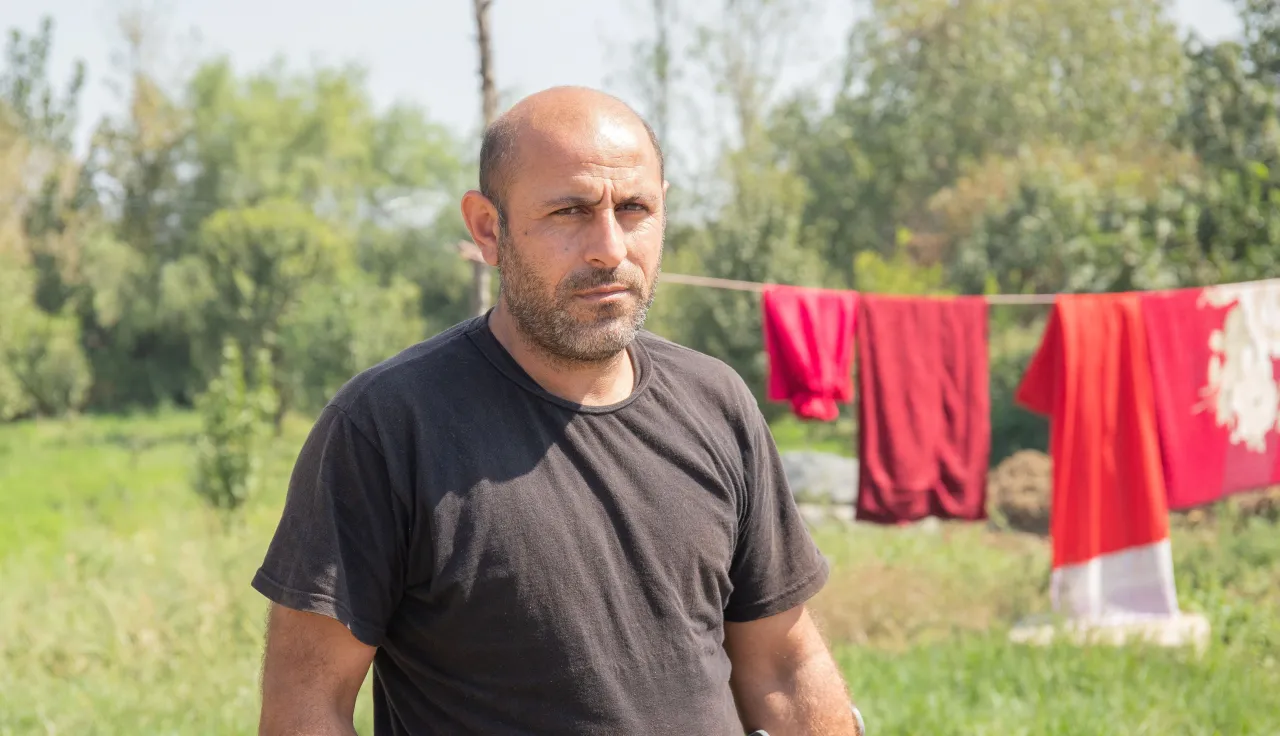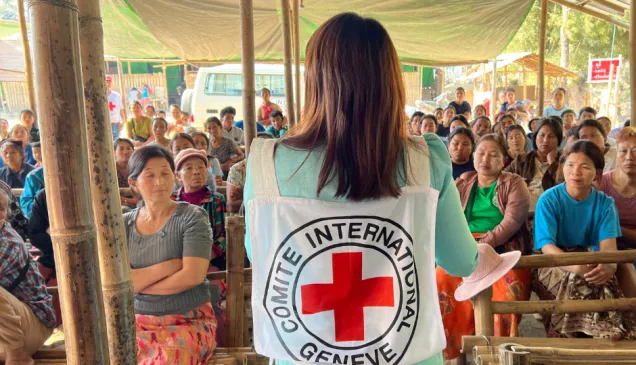Azerbaijan: A mine survivor’s journey of resilience and raising awareness

In Azerbaijan, the devastating impact of weapon contamination continues to pose significant risks to communities. Landmines and explosive remnants of war (ERW) remain hidden threats, claiming lives and challenging recovery in many regions. For over two decades, the International Committee of the Red Cross (ICRC) has worked tirelessly to raise awareness, educate communities and support survivors. Despite these ongoing efforts, the dangers of mines remain a persistent issue, with the need for continued awareness and action.

Like many others, Anar's family was affected by the tragic consequences of weapon contamination in 2021. Two of Anar's brothers in front of his young nephew were killed by an explosion when they unknowingly went into a mine-contaminated area. When Anar and his father rushed to help, a second explosion severely injured Anar and he lost a leg. The emotional pain of losing two brothers and facing a life-altering injury was immense. Responding to the tragedy, the ICRC provided financial and psychological support to Anar and his family to meet their immediate needs.
In order to prevent incidents like these, the ICRC raises awareness of mine risks and supports the government’s efforts to clear contaminated areas in partnership with the Azerbaijan Red Crescent Society (AzRCS) and in coordination with the Mine Action Agency of The Republic of Azerbaijan (ANAMA). “Through our programme that focuses on mitigating the risks of weapon contamination, we have trained survivors like Anar to become facilitators of Risk Awareness and Safer Behaviour (RASB) sessions. These sessions are designed to inform individuals about the dangers posed by land mines and ERW and how to stay safe in contaminated areas.” -Bishnu Mahat, Weapon Contamination Program coordinator of ICRC Azerbaijan Delegation.

Between 2022 and 2024, 19 mine survivors, including Anar, were trained as RASB facilitators. Now working as volunteers with the AzRCS, they have conducted over 1,400 RASB sessions, reaching thousands of people across the country.
Anar’s commitment to this cause has been unwavering. Today, he conducts awareness sessions in local tea houses, markets and even at livestock farms, where the risk of landmines are high. “If I can save even one life, it will be worth all the effort,” Anar says.
Between 2021-2025, Working closely with local authorities to support mine risk awareness efforts, the ICRC donated 3,000 mine warning signs, 100 Risk Awareness and Safer Behavior (RASB) billboards and some IT equipment and mine clearance Personal Protective Equipment( PPE) to ANAMA in support of their mine action operations. Additionally, more than 50 staff members from the Commissioner for Human Rights (Ombudsman) received training in International Mine Action Standards (IMAS), with a focus on supporting mine victims. 3x yearly roundtable on victim assistance was organized by ICRC jointly with the Ombudsman office with participation of the relevant government authorities between 2022-2025.
We also facilitated training in blast trauma care for 77 experts from both ANAMA and the Ministry of Defense. Between 2022-2025 the ICRC has trained more than 250 volunteers of the Azerbaijani Red Crescent to enhance their skills and empower them to spread awareness in the community. Only during, 2024, over 42,000 individuals were reached through door-to-door visits and sessions in tea houses and schools.

Anar says his journey as a volunteer has helped his recovery and also led to his reintegration into the community. His resilience has inspired others, and his active participation in raising awareness about landmines is a powerful reminder of the essential role survivors play in creating safer communities. “Through my efforts, I hope to prevent others from experiencing the same tragedy my family endured,” he says.
The ICRC’s work in Azerbaijan has helped to build a foundation for the ongoing efforts to reduce the impact of weapon contamination in the country, but the work continues to rely on local commitment and continued awareness. Our partnerships with local authorities, the Azerbaijan Red Crescent Society and other organizations have played a crucial role in raising awareness, supporting survivors and reducing the risks posed by landmines and ERW. Anar’s story is a testament to the strength and resilience of survivors and the impact of survivor-led initiatives in shaping a more resilient and aware society.



